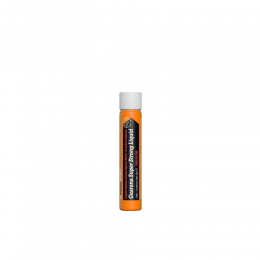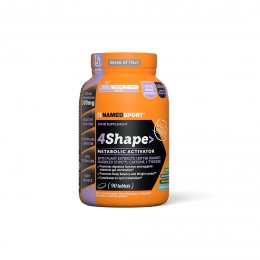No products in the cart.

Caffeine
Caffeine...
Each day, billions of people rely on caffeine to wake up, or to get through that night shift or an afternoon slump.
In fact, this natural stimulant is one of the most commonly used ingredients in the world.
Caffeine is often talked about for its negative effects on sleep and anxiety.
However, studies also report that it has various health benefits.
What is caffeine?
Caffeine is a natural stimulant most commonly found in tea, coffee, and cacao plants.
It works by stimulating the brain and central nervous system, helping you stay alert and prevent the onset of tiredness.
Historians track the first brewed tea as far back as 2737 B.C.
Coffee was reportedly discovered many years later by an Ethiopian shepherd who noticed the extra energy it gave his goats.
Caffeinated soft drinks hit the market in the late 1800s and energy drinks soon followed.
Nowadays, 80% of the world’s population consumes a caffeinated product each day, and this number goes up to 90% for adults world wide.
Caffeine is a natural stimulant that’s widely consumed worldwide. It helps you stay awake and can stave off tiredness
How caffeine works?
Once consumed, caffeine is quickly absorbed from the gut into the bloodstream. From there, it travels to the liver and is broken down into compounds that can affect the function of various organs. That said, caffeine’s main effect is on the brain. It functions by blocking the effects of adenosine, which is a neurotransmitter that relaxes the brain and makes you feel tired. Normally, adenosine levels build up over the day, making you increasingly more tired and causing you to want to go to sleep. Caffeine helps you stay awake by connecting to adenosine receptors in the brain without activating them. This blocks the effects of adenosine, leading to reduced tiredness. It may also increase blood adrenaline levels and increase brain activity of the neurotransmitters dopamine and norepinephrine. This combination further stimulates the brain and promotes a state of arousal, alertness, and focus. Because it affects your brain, caffeine is often referred to as a psychoactive drug.
Additionally, caffeine tends to exert its effects quickly. For instance, the amount found in one cup of coffee can take as little as 20 minutes to reach the bloodstream and about 1 hour to reach full effectiveness.
Caffeine’s main effect is on the brain. It stimulates the brain by blocking the effects of the neurotransmitter adenosine.
What foods and drinks contain caffeine?
Caffeine is naturally found in the seeds, nuts, or leaves of certain plants. These natural sources are then harvested and processed to produce caffeinated foods and beverages.
Here are the amounts of caffeine expected per 8-ounce (240-mL) serving of some popular beverages:
• Espresso: 240–720 mg
• Coffee: 102–200 mg
• Yerba mate: 65–130 mg
• Energy drinks: 50–160 mg
• Brewed tea: 40–120 mg
• Soft drinks: 20–40 mg
• Decaffeinated coffee: 3–12 mg
• Cocoa beverage: 2–7 mg
• Chocolate milk: 2–7 mg
Some foods also contain caffeine. For instance, 1 ounce (28 grams) of milk chocolate contains 1–15 mg, whereas 1 ounce of dark chocolate has 5–35 mg.
You can also find caffeine in some prescription or over-the-counter drugs like cold, allergy, and pain medications. It’s also a common ingredient in weight loss supplements.
Caffeine is most commonly found in coffee, tea, soft drinks, chocolate, and energy drinks.
May enhance exercise performance
When it comes to exercise, caffeine may increase the use of fat as fuel. This is beneficial because it can help the glucose stored in muscles last longer, potentially delaying the time it takes your muscles to reach exhaustion. Caffeine may also improve muscle contractions and increase tolerance to fatigue.
Researchers observed that doses of 2.3 mg per pound (5 mg per kg) of body weight improved endurance performance by up to 5% when consumed 1 hour before exercise.
Doses as low as 1.4 mg per pound (3 mg per kg) of body weight may be sufficient to reap the benefits. What’s more, studies report similar benefits in team sports, high intensity workouts, and resistance exercises.
Finally, it may also reduce perceived exertion during exercise by up to 5.6%, which can make workouts feel easier.
Consuming coffeine before exercise is likely to improve exercise performance.
Safety and side effects
Too much caffeine may also promote headaches, migraine, and high blood pressure in some individuals.
Caffeine can have negative side effects in some people, including anxiety, restlessness, and trouble sleeping.
Recommended dosages
Both the U.S. Department of Agriculture (USDA) and the European Food Safety Authority (EFSA) consider a daily intake of 400 mg of caffeine to be safe. This amounts to 2–4 cups of coffee per day.
It’s strictly recommended to limit the amount of caffeine you consume at one time to 200 mg per dose.
According to the American College of Obstetricians and Gynecologists, pregnant women should limit their daily intake to 200 mg.
A caffeine intake of 200 mg per dose, and up to 400 mg per day, is generally considered safe. Pregnant women should limit their daily intake to 200 mg or less.
TOTAL ENERGY SHOT No. 1 in the world. Strong concentrate from natural sources in accordance with the recommended doses. The advantage is the fast instant effect. Popular among athletes during intense training and competitions. Also among drivers to maintain vigilance on the road in the fight against drowsiness.
Subcategories
energy
NAMEDSPORT TOTAL ENERGY SHOT Orange 60mlsport-supplements
NAMEDSPORT 2PUMP PREWORKOUT - 300Genergy
NAMEDSPORT SPORT GEL COLA LIME - 25MLsport-supplements
NAMEDSPORT SPORT GEL ORANGE 25MLslimming
NAMEDSPORT 4SHAPE weight control - 90cprenergy
NAMEDSPORT GUARANA SUPER STRONG LIQUID - 25mlDeliver it between Tue 30 and Wed 31
energy
NAMEDSPORT TOTAL ENERGY SHOT Orange 60mlDeliver it between Tue 30 and Wed 31
sport-supplements
NAMEDSPORT 2PUMP PREWORKOUT - 300GDeliver it between Tue 30 and Wed 31
energy
NAMEDSPORT SPORT GEL COLA LIME - 25MLsport-supplements
NAMEDSPORT SPORT GEL ORANGE 25MLsport-supplements
NAMEDSPORT SPORT GEL TROPICAL 25MLslimming
NAMEDSPORT 4SHAPE weight control - 90cprDeliver it between Tue 30 and Wed 31



















